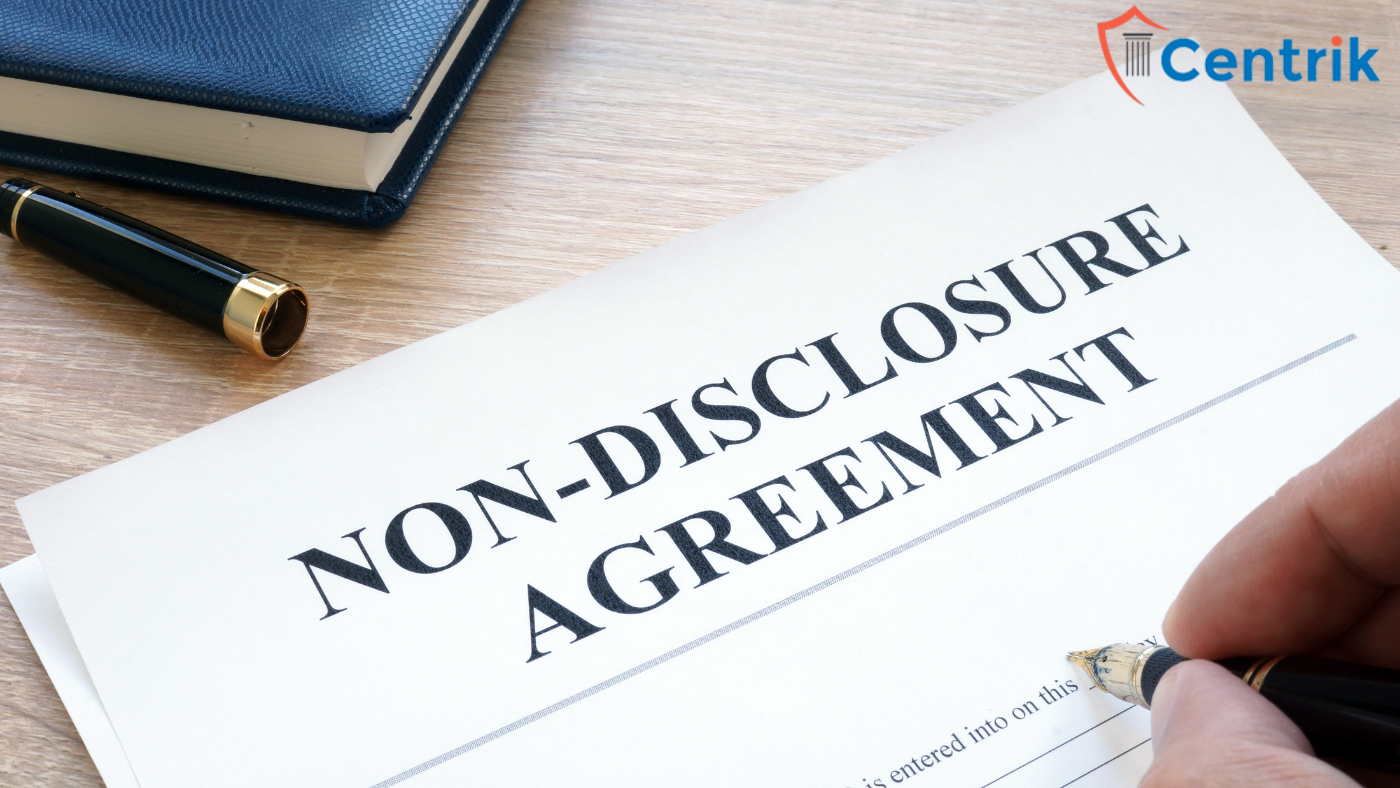 Every business or service has a Unique Selling Proposition (USP) that helps it stand out from its competitors and survive, whether it be a business process, trade secret, or marketing technique. Being sensitive in nature, there poses a threat to the business of this information being disclosed by its stakeholders like employees or other businesses they are working with to a third party.
Every business or service has a Unique Selling Proposition (USP) that helps it stand out from its competitors and survive, whether it be a business process, trade secret, or marketing technique. Being sensitive in nature, there poses a threat to the business of this information being disclosed by its stakeholders like employees or other businesses they are working with to a third party.
This can more often than not result in the business incurring unnecessary losses or worse. To prevent such a situation and indemnify it against these unforeseen contingencies, a business enters into a non-disclosure agreement with its related parties.
A non-disclosure agreement is a legally binding contract that establishes a confidential relationship. The party or parties signing the agreement agree that sensitive information they may obtain will not be made available to others. An NDA can also be known as a confidentiality agreement.
It can be summarized as an acknowledgment of a confidential relationship between two or more parties and prevents the information they’ve shared in the normal course of business from being disclosed to others. The party who violates such an agreement in any way is legally obligated to compensate the other party, pay the due damages, or whatever else that might be outlined in the agreement.
Importance of Non-Disclosure Agreements
Whenever the decision makers are involved in sensitive discussions of any commercial, it is always important to ensure an NDA is signed between the parties which instills a degree of trust and confidence, which in turn can assist in open negotiations and exploring wider horizons.
This in turn ensures optimal transparency and best results for the business as complete information could be conveyed to other parties without fear of being misused, further putting at bay the risks of undue loss to any of the parties involved.
As stated above, the signing of an NDA grants more trust between the parties signing the NDA and ensures that despite heavy negotiations, agreements, and disagreements, the information is protected at all times. It significantly curbs the theft and misuse of intellectual property of the corporation or an individual as well.
It is highly recommended to sign an NDA at the very beginning of the negotiations between business entities, even when it is still uncertain as to whether the parties will agree to come together to enter into a business agreement as it enables free communication and expressing confidential facts too. In such circumstances, information is shared between parties in order to make prima facie evaluations, analyze the market based on prevailing broad facts, and make predictions about future projects.
In the event that the deal falls apart at the negotiation stage, the parties can be sure that the shared data will not be used against them or transferred to third parties. Irrespective of the fact whether or not an ultimate business deal is entered into or not, a non-disclosure agreement is signed beforehand.
NDA is also important to protect information from being misused or shared with a third party by an intern or an employee of a business entity. It comes in handy to keep the internal information of an organization truly confidential and barring people from discussing it with others not only while they are engaged with it but also after having completed their tenures.
The main intent behind the signing of an NDA is to protect information shared without any reluctance, therefore it ensures the privacy and confidentiality of information shared. it reduces the scope of breach of any disclosures as the aggrieved party is then given an alternative to seek legal recourse in case of any breach of information.
Since NDA is a legal document, it is of immense importance for avoiding and resolving any conflict that might arise in the future due to conflicts among the parties due to any reason. The other party can be anyone, an organization’s own employees, or some other business or individual. Any party infringing the agreement would be legally liable to compensate for damages up to the extent of such damage.
This prevents the other party from avoiding any such disclosures and creates a sense of coercive awareness. It clearly states (in written format), anything that comes under the ambit of ‘confidential’, in the long run avoiding any ambiguity or loss of information.
Overall, an NDA protects disclosures of intellectual property especially in its day-to-day operations with vendors and employees (including trade secrets, proprietary information, and other confidential information), safeguarding a business entity as a whole from any undue losses and protecting its long-term interests.




 join For Updates
join For Updates